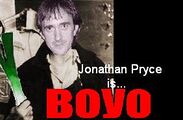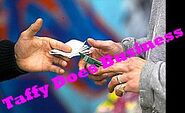Welshploitation
| This page was originally sporked from a grue. |
| This page was originally sporked from flying ninjas. |
Welshploitation is a film genre in Welsh Cinema that was created in the 1970’s by the Welsh film industry. Learning from the blaxploitation films of the United States, a sub genre of exploitation films to entice the disenfranchised African-American cinema goer, Welshploitation was designed to bring Welsh customers in to the theatres. These films were set and made in Wales, using common Welsh turns of phrase in their dialogue, and centered on Welsh activities such as rugby and farming. They often took their names and soundtracks from Tom Jones songs. The movement was birthed by the release of “Boyo”.
History of Cinema in Wales[edit]
The first cinema in Wales was opened in Cardiff on 14th January 1961 with one screen and 15 seats, showing the Tennessee Williams classic ‘A Streetcar named Desire’. This was deemed to be a massive cultural set back for Wales, as it destroyed all of their newly developed confidence in the radio, which until 1959 was called “the devil box”. Leading Welsh politician Aneurin Bevan declared the new building “an evil, evil man”, causing it to be left abandoned for the following ten years.
Creation of Welshploitation[edit]
Realising the potential the cinema could have in Wales after a trip to Bristol, coal mine warlord Brychan Pugh set about finding more information about movies and the movie industry. He believed that the films could make a huge impact, particularly as a weekend activity (drinking on a Sunday was not legalised until late 1999). He sent his son, Llinos to study under renowned Hollywood director/writer/producer Dan Fanny in 1964. Llinos came back to Wales with a head full of ideas, to find his father had procured the deserted cinema, and had entered partnership with Klive Paramount, talent agent and industrial fisherman, to secure on-screen presence for their films. The three men saw that the reason cinema had previously failed in Wales because it gave their considerably parochial audience very little to relate to. They felt that a strong local feel would encourage people to attend. They set up UglyLovely Productions Ltd. to begin production of their first film. Their first script, “ Boyo ” was written by the trio against great adversity (neither of the three were considered literate). It was filmed and edited for release on the 27th May 1972.
Common Themes[edit]
Welshploitation films often exaggerated criminal and sexual life in Wales. When set in the north of Wales, the action was often set around slate factories, mountains and football, whereas in the south, more often the movies generally took place in coal mines, valleys and featured rugby. Both styles of film often featured farming life and English characters are either daft nerdy squares or corrupt policemen.
Controversy and Stereotypes[edit]
Many political parties and movements felt that Welshploitation films stereotyped the Welsh people as ‘inbred thieves and idiots’. The main movements included ‘The Male Hairdressers Guild’, ‘The Wool-weavers Union’ and ‘Plaid Cymru’. These factions were very vocal (and certainly didn’t appreciate jokes comparing their vocality to a Male Voice Choir), which eventually led to the death of the genre.
Many critics still feel these films hold many racist stereotypes, but their influence remains prominent on Welsh film to this day. Never has this been more true in the Oscar nominated ‘ Twin Town ’. Films such as ‘ Notting Hill ’ also hold space for one particularly typical Welshploitation character, as did the smash hit sitcom ‘ Coupling ’.
“Stereotypes they may be, but that doesn't mean they're not true. Have you ever been to Wales? Well, I haven't. But I'm sure you'll agree...on...uh, something.”
Famous Welshploitation Films[edit]
The Good, The Bad, and the Swansea (1968) - This was an early Western film combining what would later be the Welshploitation genre with Westerns. It was only officially classed as a Welshploitation film when released on VHS in the 1980's.
“Boyo” (1972) - This was the first film made by UglyLovely Productions, that launched the genre. It is set in Cardiff Prison, set around the experiences of Young Huw, new to the tough life inside. Starring up and coming Welsh actor Jonathan Pryce. Pryce was to appear in many subsequent films by this team. Although commonly believed to be a ‘rip - off’ of English film ‘Scum’, this film is based on the experiences of Paramount during his prison term for buggering a sheep.
Bunfight at the O.K. Tea Rooms (1972) - Another Welsh-Western capitalising on the success of The Good, The Bad, and the Swansea. However, it's weak plot and crappy acting made it the 7th Worst Western of all Time (according to NBC anyway).
“What’s New, Pussycat” (1973) - Funding for the follow up to ‘Boyo’ was dramatically increased by the investment of singer Tom Jones, who instantly fell in love with the genre. This film, with an original soundtrack provided by Jones, starred unknown Glynis Barrow as Pussycat Brown , a strong willed private eye. This film was an international success, being shown in both England and Wales. This film showed how desirable it was to have a female lead, led to many others.
“Delilah” (1973) - Delilah Jones (played by another unknown, Rhiannon Llew) is a down trodden Welsh housewife suppressed by her overbearing English husband, who is determined to fight back and live her life to the full.
“Taffy Does Business” (1973) - The first Welshpoitation film not to be produced by the UglyLovely team. It featured another upcoming Welsh actor Timothy Dalton as a small time drug dealer, who fights to make his name known to the crime lords of Crymach. This film also featured veteran Welsh actor Windsor Davies as the ‘Taffia’ big wig Reg Morgan.
“Dragon” - (1973) This was the first feature to come from north Wales. Denzil ‘Dragon’ Evans works for the Wrexham Police Force, forced to trawl the streets looking for the daughter of local gangster, Rhys Hughes. This film was incredibly stylised, often showing ‘Dragon’ in the company of women, and cruising around in his “cwtch-car”, a 60 mph Ford Capri 1.3L that was a real draw for the ladies. Evans was played by Huw Ceredig.
“Babi Bach” (1976) - Although this film had a Welsh language title, the film was in English in order to capitalise on the popularity of genre, which had spread nearly as far as Scotland. In this story, a considerate young pimp has to battle for turf with an evil invading English pimp, who treats his ladies with an iron hand. In this drug fuelled adventure, the hero Rhys Cleaver was played by John Rhys-Davies, and the evil English pimp, Robert ‘Steel Fist’ Smith by the darling of the genre Jonathan Pryce.
“Double Demons” (1983) - In this successful movie, an unsuccessful demon controls the word and stuff.
“The Silence of the Lambs” (1991) - A rom-com starring the famous welsh ac-tor Anthony Hopkins. The plot revolves around the central theme of sheep shagging. The lambs went silent when they saw Hannibal whip out his shlong, they knew what was coming. Shhhhllcchtt-ttt--tttt-tttt.
Future[edit]
The genre slowly died after cinema became so successful in Wales, that films from other countries were happily embraced. The thirtieth anniversary edition of ‘Boyo’ was put on selected release on DVD. Industry founder Paramount is currently working with long time Welshplotation fan Spike Lee, on an adaptation of Dylan Thomas’ “Under Milk Wood”, tentatively titled ‘In Da Milk ’Hood’. A Welsh rugby exploitation film is also planned, called 'Sweet Duncan Jones' Baaaadassss Scrum'.


